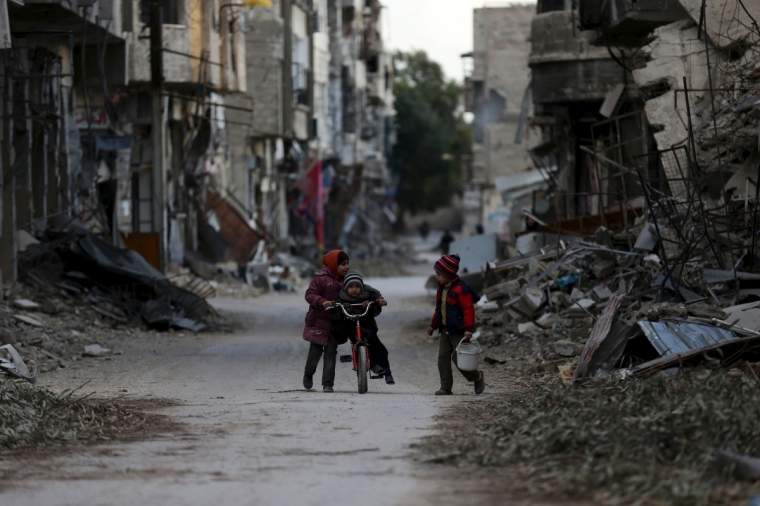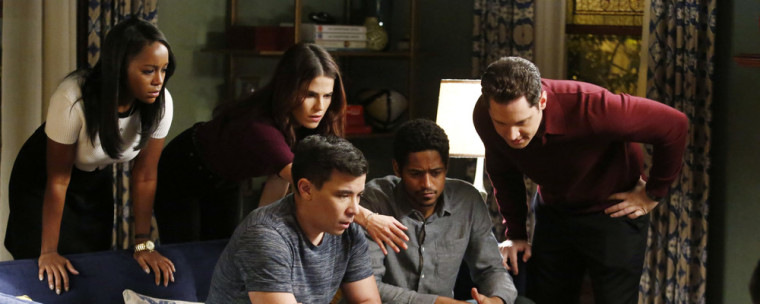

Syrian peace talks meant to begin this week were stalled on Monday partly over the question of who would represent the opponents of President Bashar al-Assad.
U.S. Secretary of State John Kerry said he expected clarity within a day or two, and expressed support for the United Nations envoy who has the tricky task of issuing invitations for the first talks in two years to end the 5-year-old civil war.
The talks were meant to begin on Monday in Geneva, but have been held up by international disagreement over who should be invited from the opposition. Rebels also want an end to air strikes and government sieges of territory they hold, and the release of detainees.
Diplomacy has so far yielded no progress towards ending or even curbing Syria's civil war, which has killed more than 250,000 people and driven more than 10 million from their homes.
Since the last peace conference was held in early 2014, Islamic State fighters have declared a caliphate across much of Syria and Iraq, and the war has drawn in most world powers. The United States has led air strikes against the militants since 2014 and Russia last year launched a separate air campaign against enemies of its ally Assad.
The Syrian military and its allies have been encouraged by recent gains carved out with the help of overwhelming Russian fire power.
Diplomats were given a new push by a U.N. Security Council resolution backed by Washington and Moscow last month calling for talks, but peace efforts are on hold while questions including whom to invite are unresolved.
Russia says opposition figures it calls terrorists should be barred from the talks, and wants to include groups like the Kurds who control wide areas of northern Syria. Regional heavyweight Turkey strongly opposes inviting the Kurds.
The main Sunni Arab opposition groups, who are supported by Arab governments and the West, say they will not attend unless they can choose their own delegation. Spokesman Salim al-Muslat said the opposition High Negotiation Committee (HNC) would discuss its position on Tuesday.
Kerry said he backed U.N. envoy Staffan de Mistura in holding off on issuing invitations until things are clearer.
"We will have to see what decision Staffan makes as to exactly how he is going to begin; but we don't want to decide and have it crumble on day one. It's worth taking a day or two, or three, or whatever," Kerry said during a visit to Laos.
It was up to the Syrian parties to ensure successful talks, Kerry added: "They have to be serious. If they are not serious, war will continue. Up to them. You can lead a horse to water; you can't make it drink."
FRUSTRATION
The peace conference, if it takes place, will be the third since the war began and the first convened by de Mistura, a veteran diplomat with dual Swedish and Italian nationality who took the job of U.N. envoy for Syria in 2014.
His two predecessors quit in apparent frustration after presiding over conferences in Geneva that yielded no significant progress, with the opposition refusing to back off its demand that Assad leave power and the president refusing to step down.
The war has ground on for years with no side close to victory. After months of opposition gains in early 2015, Russia's intervention in the second half of the year tipped the balance of power back in favour of the government.
Rebel forces lost the town of Rabiya in Latakia province over the weekend, their second major setback near the Turkish border in northwestern Syria in recent weeks as the Syrian government and Russia seek to cut rebel supply lines to Turkey.
A member of Ahrar al-Sham, one of the biggest insurgent groups, said the intensity of the Russian intervention in the area meant the rebels' strategy of holding and defending territory had collapsed and fighters would shift to guerrilla tactics.
"The small guerrilla operations have begun. They (rebels) enter an area, attack and return back," said Abu Baraa al-Lathkani.
The Syrian military, its morale running high, is planning the next phase of its offensive in northern Syria. The coming target is Idlib, a stronghold of rebel groups including the al Qaeda-linked Nusra Front, said a military source.
Opposition spokesman Muslat accused Russia and the Syrian government of throwing obstacles in the path of the talks.
The HNC, formed in Saudi Arabia last month and grouping armed and political opponents of Assad, has repeatedly said talks cannot begin until air strikes are halted, government sieges of rebel held territory are lifted and detainees freed, steps outlined in the Dec. 18 U.N. resolution.
"We want to realise pure humanitarian matters. They are not preconditions. It is an international resolution at least part of which must be implemented, so we see there is seriousness and good will in this matter," Muslat said on Saudi-owned Arabic news channel Arabiya al-Hadath.
"Unfortunately, it is not possible to sit and talk to anyone without the suffering being lifted first."
The lead negotiator appointed by the HNC told Reuters on Sunday the opposition was coming under pressure from Kerry to attend the talks before those demands were met.
Muslat said talks with Kerry had been "positive" and the opposition was "sticking by certain principles, not putting up obstacles."